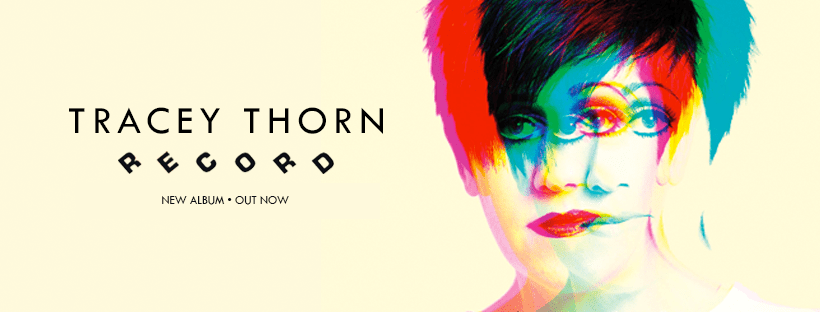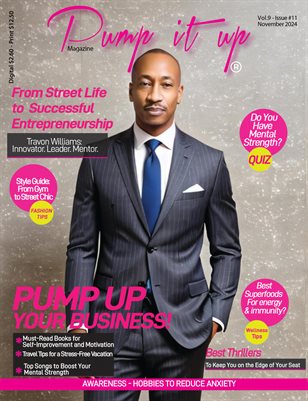Successfully infusing politics into pop music is no easy feat.
But Tracey Thorn, who is gearing up to release her latest album, “Record,” on Friday has mastered the subtle art of saying something poignant, true and perhaps startling about the world around her without the in-your-face trappings of the recent “woke pop” phenomenon that can smack of insincerity and, worse, have listeners reaching for the “next” button on their Spotify dashboards.
Thorn, who has been regularly releasing solo albums since Everything But the Girl, the duo she fronted with husband Ben Watt, went on a seemingly infinite hiatus in 1999, recently described the songs on “Record” as “nine feminist bangers” that explore everything from sisterhood to raising children to social media’s impact on love and longing.
During a conversation with HuffPost, Thorn chatted about her thoughts on gender as someone who was never a “girlie girl,” the radical nature of a pop song about birth control and putting her kids to bed ― or at least attempting to ― and why she’s so noticeably happy on Twitter lately.
When I consider “Record” as a whole, it sounds like the story of someone singing about what it means to be a woman at this particular moment in history. Where was your head at when you started writing the album?
I’ve got a notebook from when I started writing the lyrics to the album. I was just looking back at it the other day and I saw a page where I had written down these one-word ideas as if they might be song titles or song themes and it’s all things like “daughter,” “sister,” “mother,” “school,” “work,” “music,” “love,” “sex” — I was just writing down all of these things that might be milestones and roles in a woman’s life. And when I look at these songs now, some of them did end up following that track — I took an idea and went with that as the theme. I hate to use the term “concept album” but it definitely has a continuity in themes of the songs.
In the mid-’90s, Everything But the Girl was offered a highly sought-after spot touring with U2 and you turned it down because you wanted to start a family. You once remarked that after you happily made that decision, there was still this little voice in your head that kept asking, “Was that a really stupid move? Should we have said yes?” I’m assuming the album’s first single, “Queen,” was directly inspired by moments like that throughout your career.
I’m definitely looking back over my life and especially my career. The way everything happened wasn’t inevitable — it could have gone many different ways. Like most people, I have a curiosity about the other ways my life might have turned out. You’re right — when I was talking about that moment when we turned down the U2 tour, I do think it was the right thing to do. Still, I think it’s perfectly reasonable to think you’ve done the right thing but still wonder about what might have happened. It’s that “sliding doors” moment.
The easy follow-up question might be to ask, “Do you ever regret that decision?” but one of the things that most intrigued me about the album is that I don’t really hear any regret anywhere on it. Even though you’re looking back and considering what could have been, and maybe what should have been, there’s this remarkable confidence about ― and acceptance of ― where you’re at now.
There definitely isn’t any regret. I think there’s definitely a lot of confidence there. I’m also playing with this distinction between the confessional and the sense of being detached from that. I think in “Queen” it’s almost me being slightly detached from my public persona. This could even be another person wondering about my life. It’s me looking back at the public person I was. When I’m referring to things like the “backseat of a blacked out car,” that calls to mind the album sleeve of “Walking Wounded.” I’m stepping outside myself a bit and looking back at the public things that have made up my life. But you’re right — it’s not a point of view of regret. It’s a curiosity.
The song “Air” is one of the tracks on the album that feels especially personal to me. So many of the lyrics — like that plainspoken but incredibly telling line when you sing “I love the boys / but they like the girlie, girlie, girlie girls” — resonated with me as a queer person who has spent a lot of his life thinking about his own gender. How did you understand your gender when you were younger in light of you not being a “girlie girl,” and has that changed as you’ve gotten older?
Certainly in that song I’m looking back to how my perception of my gender affected me as a teen. At that stage, I found it profoundly frustrating. In some ways I was perfectly happy not being a “girlie, girlie girl,” but then it frustrated me that the boys I met who seemed to me to be the “cool boys” in every other respect — they had the right records and everything — but when it came to their notions of gender, they reverted to stereotypes. I find it so interesting to watch my kids’ generation growing up and dealing with this stuff. They seem to be moving forward on all fronts and really talking about gender and looking at it. They seem to really have a language for things. Sometimes people say you shouldn’t label things, but when you have words for things, you can start talking about them. That’s why I’ve been so interested in watching these conversations develop because I think they’re putting into words things that people have been thinking about for a long time but just couldn’t quite pin down.
When you realized that the boys you were interested in might not appreciate you and the traits that you embodied, did you ever try and change yourself or did you think, I need to start looking for a different kind of boy?
I suspect when I was pretty young, I tried my best to fit and to be appealing because that’s normal when you’re a young teen — you try to not stick out. You try to fit in. But then again, I had a lot of impulses that were pulling me away from trying to fit in — buying a guitar and wanting to be in a band immediately set me apart from a lot of the other girls. I was pulled in both directions. I didn’t want to not do the things I wanted to do just because that was considered feminine or whatever, so, while I found it frustrating, in the end, my impulse was to think, I’m going to do this anyway. The need to do it was stronger than the forces that were telling me not to.
The messages in the song “Sister” are so relevant right now with everything that’s happening — from the Time’s Up movement, to the Me Too movement to the incredible young women who are fighting for gun reform in Florida and other places in the United States. Was there a particular moment or event that inspired that song?
For me it was going on the [2017] Women’s March in London. There was a sense of shock that a lot of women felt in the aftermath of all of the things that were said and discussed in the months leading up to the [U.S.] presidential campaign and I shared in that. When I went on that march, though, I came away feeling really positive. Just seeing the number of women who’d been prepared to actually take to the streets and make posters and banners made me think, These women aren’t going away. The forces racked against us are in power but that doesn’t mean the opposition disappears and there are a lot of us out here. I saw a poster someone was carrying that said “Fight Like a Girl” and I thought, Now that’s a good lyric. I need to get that in a song.
This is the first song of yours that feels to me like a tried-and-true fight song.
The New Album ‘Record’ • Out Now
https://TraceyThorn.lnk.to/RecPreFP

 Click to nominate someone special for the 2025 Pump It Up Magazine Awards and let’s recognize their hard work together!
Click to nominate someone special for the 2025 Pump It Up Magazine Awards and let’s recognize their hard work together!










